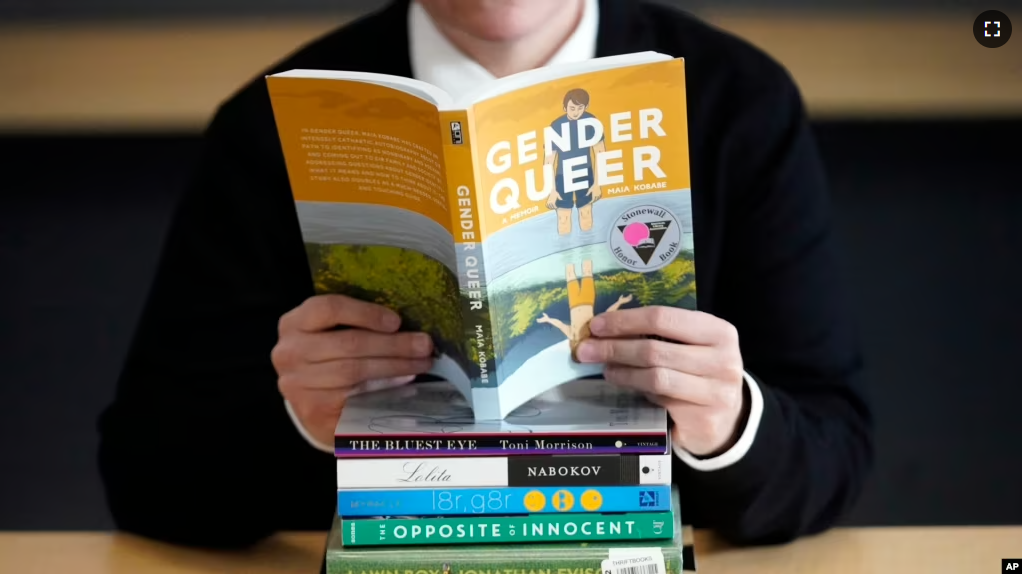The American Library Association (ALA) released a new report Thursday about book banning in the country. It found attempted book bans and information restrictions at school and public libraries continue to increase, setting a record in 2022.
The report says there were 1,200 known challenges in 2022. That is almost double the number from the year before, and it had also been record setting.
The ALA began collecting the data 20 years ago.
“I’ve never seen anything like this,” says Deborah Caldwell-Stone, who directs the ALA’s Office for Intellectual Freedom. She said the last two years have been frightening, tiring, and angering.
The report also says the way restrictions are requested has changed. A few years ago, challenges were usually from parents and community members concerned about an individual book, the ALA says.
Now, the requests are often for several removals, and organized by national groups such as Moms for Liberty. Their goal is “unifying, educating and empowering parents to defend their parental rights at all levels of government.”
Last year, more than 2,500 different books were objected to, compared to 1,858 in 2021 and just 566 in 2019. In many cases, hundreds of books were challenged in a single request.
The ALA bases its findings on media accounts and voluntary reporting from libraries. It says the numbers might be far higher.
Librarians around the country have told of being harassed and threatened with violence or legal action.
Caldwell-Stone says that some books have been targeted because of racist language. But she says the majority of requests for removal are for works with LGBTIQA+ or racial themes.
Bills easing the restriction of books have been proposed or passed in Arizona, Iowa, Texas, Missouri, and Oklahoma, among other states.
In Florida, Governor Ron DeSantis has approved laws to review reading materials and limit classroom discussion of gender identity and race. Books removed in Florida include John Green’s Looking for Alaska, Colleen Hoover’s Hopeless, and Margaret Atwood’s The Handmaid’s Tale.
DeSantis has called reports of mass bannings a “hoax.” He said earlier this month that some people “are attempting to use our schools for indoctrination.”
Some books do come back. Officials at Florida’s Duval County Public Schools were widely criticized after they removed Roberto Clemente: The Pride of the Pittsburgh Pirates. It is a children’s book about of the late baseball star from Puerto Rico.
In February, they announced the book would again be available, explaining they had needed to examine it and make sure it did not violate any state laws.
I’m Gregory Stachel.
Hillel Italie reported this story for The Associated Press. Gregory Stachel adapted it for VOA Learning English.
____________________________________________________________________
Words in This Story
library – n. a place where books, magazines, and other materials (such as videos and musical recordings) are available for people to use or borrow
challenge – v. to say or show that (something) may not be true, correct, or legal
harass – v. to annoy or bother (someone) in a constant or repeated way
LGBTIQA+ – n. used to mean Lesbian, Gay, Bisexual, Transgender and Queer
theme – n. the main subject that is being discussed or described in a piece of writing, a movie
gender – n. the state of being male or female
hoax – n. an act that is meant to trick or deceive people
indoctrinate – v. to teach (someone) to fully accept the ideas, opinions, and beliefs of a particular group and to not consider other ideas, opinions, and beliefs
